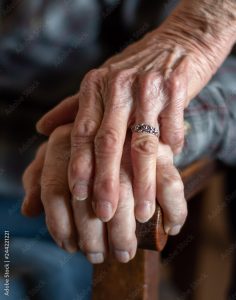Home Care And Hospice In Old Age
With the world population on the decline, we are faced with the problem of caring for many more old people in the years to come. Most people prefer to grow old in their own home amongst all that is familiar, treasured and loved – but how many families have planned practically for this time? Do you/family/parents have a plan covering financial, physical, spiritual as well as emotional needs?
Have conversations as soon as possible, drawing on advice from professionals. How capable are you/family/parents of looking after themselves? Is there a support system in place? Are there mobility issues, special needs, illness, or disease and how quickly will the situation change? Look at the immediate needs first, remembering that moving forward, anything can happen. Investigate all options: care home, care at home, domiciliary care, hospice, and have the difficult conversations about where someone wants to age and die. This stage of life is all about deterioration and frailty, and that means it must be as people centered as possible, compassion and dignity above all else. Care for the primary carer/s is also imperative especially in home care.
Legalities and family dynamics play a large part in getting old so have difficult family meetings about wills and funerals ensuring that everyone agrees, and if there is any doubt at all ensure that things are in writing and are legal as well as medically sound. People’s true colours come out at births, weddings, and funerals as emotions are heightened.
Accept and respect everyone’s differences even if you cannot condone them. Siblings for example, may not share similar behaviour or viewpoints just because they share parents. Individuals have different emotional levels of maturity, various ways of experiencing their spirituality or religious path, different fears, different financial and health constraints, and very different beliefs. Allow people their individuality and respect those of the elderly or dying.
The process of aging and death is not about the people left behind; the primary focus must be on the people needing care and support. People often transfer their needs and wants onto those around them in times of emotional stress and this deflects from the very people needing full attention. If hospice is the best place for someone to die in then let it be clear to all concerned before it becomes traumatic for the person who is dying. If there are family issues causing conflict, breakdown in communication and drama, think about how this will affect the elderly, the legalities, and finances and in particular, dignity and grace at the end of life. If things cannot be resolved, then at least attempt to not let them become obstructive. Selflessness and compassion are key.
“When my client has learned to answer their own questions, my job is done”.
Need to know more? WhatsApp on +27823740940 or email on barbara@barbarascogings.com to book a complimentary 20-minute session to discuss this in more detail.

